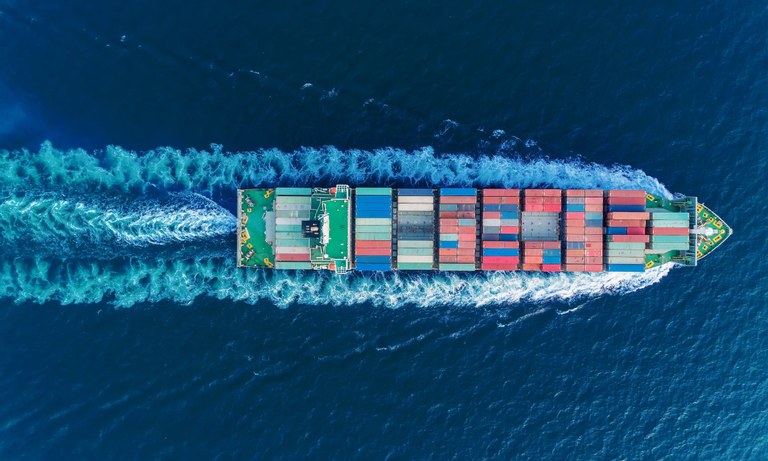Overview
The IPR Center’s Commercial Fraud Unit coordinates investigative efforts, national programs, and operations related to crimes involving those who try to defraud or evade U.S. trade laws and regulations. CFU collaborates with the IPR Center’s public and private sector partners to uncover and disrupt schemes that harm the U.S. economy and domestic industry.

Impact
Commercial fraud can have significant impacts on health and safety, national security, and the economy. For example:
Health & Safety
Fraudulent products, such as counterfeit medications or substandard food products, can pose serious health risks to consumers. For example, counterfeit pharmaceuticals may contain harmful substances or incorrect dosages, leading to adverse health effects. Similarly, counterfeit or substandard goods may not meet safety standards, increasing the risk of accidents or injuries.
National Security
Commercial fraud can undermine national security by funding criminal organizations and terrorist groups. Illicit trade in counterfeit goods, including counterfeit electronics, pharmaceuticals, and luxury goods, can generate substantial profits for organized crime networks. These profits may be used to finance other illegal activities, including terrorism, drug trafficking, and human trafficking, thereby posing a threat to national security.
Economy
Commercial fraud can have a detrimental impact on the economy by reducing consumer confidence, undermining trust in markets, and stifling innovation. Fraudulent activities, such as counterfeit goods and financial scams can result in significant financial losses for businesses, government interests, and consumers. Moreover, fraud-related litigation and enforcement efforts can impose additional costs on businesses and taxpayers. Overall, commercial fraud can weaken economic growth, hinder competitiveness, and impede efforts to create a fair and transparent business environment.
Call-to-Action
Consumers can get involved in commercial fraud enforcement by reporting any suspicious activities or fraudulent behavior to authorities such as consumer protection agencies, the Federal Trade Commission (FTC), or similar regulatory agencies. They can also participate in consumer advocacy groups, share their experiences to raise awareness, and educate others about common scams and fraud tactics. Additionally, consumers can stay informed about their rights and take proactive measures to protect themselves from fraud by carefully reviewing contracts, monitoring financial statements, and reporting any discrepancies promptly.
Programs
Antidumping and Countervailing Duties

The Antidumping and Countervailing Duties Program conducts investigations into illicit schemes to evade the payment of duties on certain imports. These duties are in place to help domestic producers compete against foreign suppliers engaged in or benefiting from dumping and export subsidies.
General Fraud

HSI conducts general fraud investigations focusing on violations of laws or regulations pertaining to the importation of merchandise by means of false or fraudulent documents, statements, and/or practices. The most common violations relate to the evasion of trade controls and restrictions enacted to protect domestic industries and the national economy from predatory trade practices and the introduction of goods which may create a public health and safety risk. Loss of revenue to the U.S. government is a major consideration in general fraud cases. Many violations within the general fraud category are often part of a larger scheme involving other HSI programmatic areas including money laundering, human trafficking, and financial fraud. HSI works closely with U.S. Customs and Border Protection and other government agencies to investigate general fraud crimes.
Illegal, Unreported, and Unregulated Fishing

The Illegal, Unreported, and Unregulated Fishing (IUUF) initiatives focus on investigations regarding the illegal sourcing and trade of fisheries. IUUF is a major contributor to global overfishing, threatening food security, maritime livelihoods, and fisheries sustainability. H.R.774 - Illegal, Unreported, and Unregulated Fishing Enforcement Act of 2015, as well as other statutes, provide enforcement mandates to combat IUUF and achieve sustainable fisheries. HSI utilizes its customs authorities to conduct investigations of IUUF to support national and international prosecutions and provide evidence to guide future policy and management of fisheries..
Textile Program

The Textile Program investigates criminal and civil violations of customs laws including false invoicing, false claims of origin, false markings/labeling, misclassification, fraudulent descriptions and smuggling.
Trade Agreement Investigations

The Trade Agreement Investigations Program investigates the illegal import and export of products in violation of the terms of free trade agreements and legislated trade programs.
Partners
See Also

Counterfeit Goods
The Intellectual Property Unit coordinates the U.S. government’s response to counterfeiting and intellectual property crimes.

Government Supply Chain
The Government Supply Chain Investigations Unit (GSCIU) coordinates the U.S. government’s response to infiltration of counterfeit and substandard goods into the U.S. Government supply chain.

Wildlife Trafficking
The Wildlife and Environmental Crimes Unit (WECU) coordinates with public and private partners to boost HSI's investigative and analytical capabilities globally.




